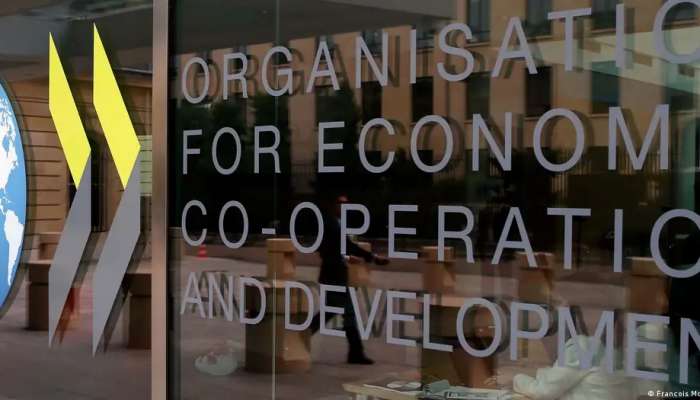
Paris: The Organisation for Economic Cooperation and Development (OECD) on Wednesday presented its annual world economic outlook report, in Paris.
Despite falling inflation, the forum for rich countries predicts economic numbers for 2024 to remain anemic, with Germany, for instance, predicted to post growth of just 0.6% for the coming year.
European economies especially are slated for more weak economic numbers according to the OECD, as global geopolitical strains, multiple wars, digitalisation and climate policy adjustments all disrupt established economies.
"The broad picture for the world economy over the next two years is one of a moderate slowdown followed by eventual normalization, with growth returning to near-trend rates, and inflation converging back to central bank targets by 2025," said the OECD.
Persistent inflation and rising consumer prices have been identified as drags on economic growth, whereas rising incomes and dwindling interest rates are seen as factors driving it.
Global economic growth for 2023 is projected to be 2.9%.
Overall, growth in developing economies is expected to outpace that of industrialised nations.
Warning that the Israel-Hamas war in the Middle East could further pose short-term risk to growth, the OECD adjusted its forecast for global economic expansion to 2.7%, with 3.0% growth expected in 2025.
"If the conflict were to intensify and broaden within the wider region, there are much stronger risks that could slow growth and push up inflation," said the OECD, which advises its 38 member countries on economic policy.
The forum had already projected a temporary but pronounced slowdown for Israel, but it said the broader direct effects of the conflict on the world economy have so far been "relatively limited."